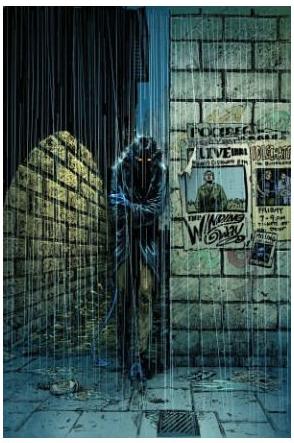Date read: 2/20/06
Read from: Public library
Reviewer: Emera
[Warning: Summary contains spoilers for the last two books of the Samaria trilogy, though the back-cover summary of the very first book spoils it all anyway (wtf).]
On the angel-governed planet of Samaria, Tamar is a member of the Jacobites, a cult persecuted and nearly destroyed by the Archangel Bael for their insistence that the god Jovah is no more than a mechanical spaceship that once ferried the original Samarian settlers to their new planet. Once again forced to flee the destruction of her friends and comrades, Tamar finds herself unwillingly entangled with the angel Jared, who, despite his lazy and easygoing nature, is expected to become the next Archangel. Jared himself is wary of Bael’s increasing fanaticism and strongly anti-technology stance. In a Samaria that is on the brink of industrialization, Jared begins to aid Tamar in her search for the Alleluia Files, the mythical documents that reveal the truth of Jovah’s identity.
I expected to be not-very-impressed as usual by Shinn’s work, and several times had second thoughts about bothering to pick up The Alleluia File, which is the third book of the Samaria trilogy. Nevertheless, I actually rather enjoyed this one, so I’m glad I took the time to finish up the trilogy. To reiterate my review of Archangel, the Samaria books are very conceptually engaging, this one especially so, as it’s rare for authors in fantasy to push the typical pastoral-feudal (or Renaissance, tops) society towards industrialization. In this sense, it’s a satisfying close to the overall arc of the trilogy. Particular fans of Jovah’s Angel, the second book in the trilogy, may also be gratified by the numerous nods made to characters and plot points of that book – though I get the feeling that it’s one of the least liked in the series, given its goody-two-shoes protagonist. (I’d comment more on Jovah’s Angel but I never wrote a review of it.)
To return to The Alleluia Files – as a whole, it’s significantly weakened by its loose construction and annoying reliance on coincidence to move the plot, and although Shinn generally writes good romance, a number of the romantic scenes in this book were unaccountably dorky and saccharine. Also, though its characters are likable and often moving, I found myself quite unable to remember anything about them only a little while after reading the book – which was also the case for me with the first two Samaria books. Ultimately, I found the Samaria trilogy entertaining and readable, but not outstanding. I haven’t bothered to follow up on the two standalone novels that follow it.
Go to:
Sharon Shinn
Archangel, by Sharon Shinn (1997) [E]
The Shape-Changer’s Wife, by Sharon Shinn (1995) [E]

